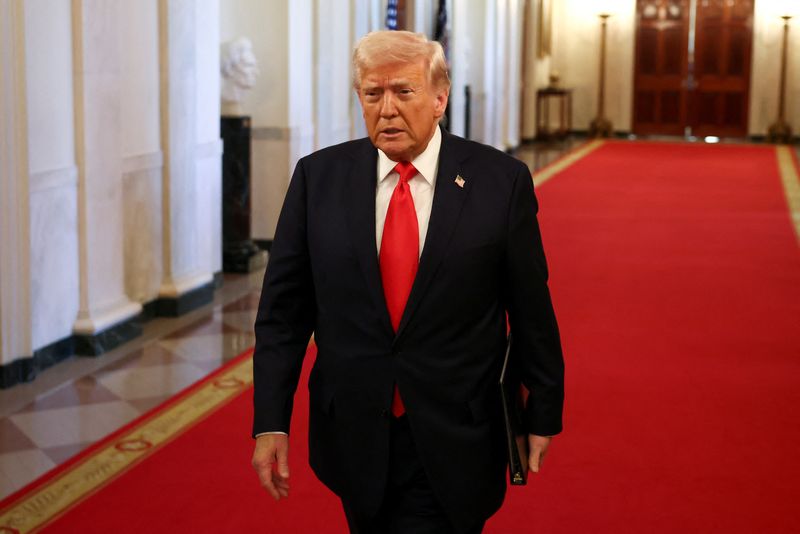Trump signs healthcare executive order that includes a win for pharma companies

By Ahmed Aboulenein
WASHINGTON (Reuters) – U.S. President Donald Trump directed his health department on Tuesday to work with Congress on revamping a law that allows Medicare to negotiate prescription drug prices, seeking to introduce a change the pharmaceutical industry has lobbied for.
Drugmakers have been pushing to delay the timeline under which medications become eligible for price negotiations by four years for small molecule drugs, which are primarily pills and account for most medicines.
That would align with the 13-year wait until more complex biotech drugs become eligible for Medicare price negotiations.
The wide-ranging executive order signed by Trump aims to reduce healthcare costs. It comes one day after the Trump administration instituted a national security report into the pharmaceutical industry, a precursor to sector-specific tariffs.
The ability of Medicare for the first time to directly negotiate prices on selected medicines was part of President Joe Biden’s Inflation Reduction Act. Medicare covers 66 million Americans, mostly aged 65 and older.
Drugmakers have complained about the terms of Medicare’s negotiating powers, saying it would stifle innovation. In particular, the industry has opposed the time frame for negotiation eligibility for most drugs.
When drugs have no competition, the law now allows the government to negotiate prices for complex biologic, or biotech, drugs after 13 years on the market, but after 9 years for drugs taken as pills and capsules.
Trump cannot implement the change through executive order because the negotiation process is outlined in legislation, but his order instructs Secretary of Health and Human Services Robert F. Kennedy Jr. to work with Congress on changing it.
Other proposed changes to the negotiation process would yield more savings than those achieved during the first round under the Biden administration, White House officials told reporters on a call before the signing without providing specifics.
Biden’s administration had negotiated a price cut of as much as 79% for the first group of 10 drugs seen as among the most costly to the Medicare program.
The Trump administration will negotiate prices for the second group of 15 medications, which includes Novo Nordisk’s blockbuster diabetes and weight-loss treatments Ozempic and Wegovy as well as Pfizer’s cancer drugs Ibrance and Xtandi.
Trump’s order also seeks to align Medicare payments for drugs with those of hospitals, which can be 35% lower, and calls for standardizing patient payment rates across locations so that people are not charged different rates depending on where they receive care, a policy known as site-neutral payments.
Trump directed the Food and Drug Administration to encourage more applications from states for drug importation programs, which were initiated during his first term.
So far only Florida has won FDA authorization to directly import drugs from Canada, even though several more states have applied. It also directs the FDA to streamline approval for less expensive generic and biosimilar versions of branded medicines.
(Reporting by Ahmed Aboulenein; Editing by Bill Berkrot)









